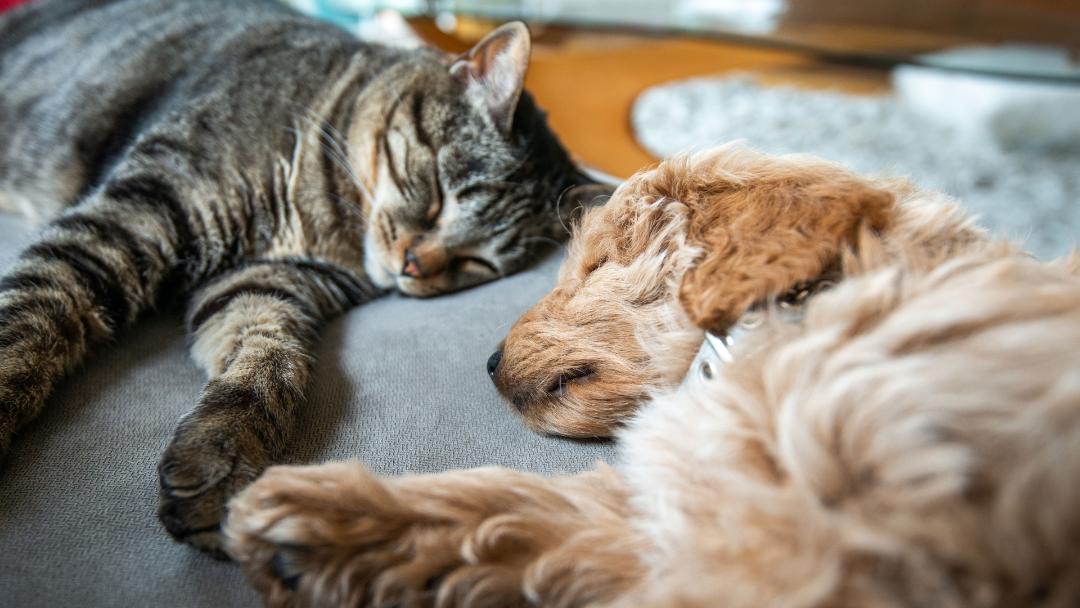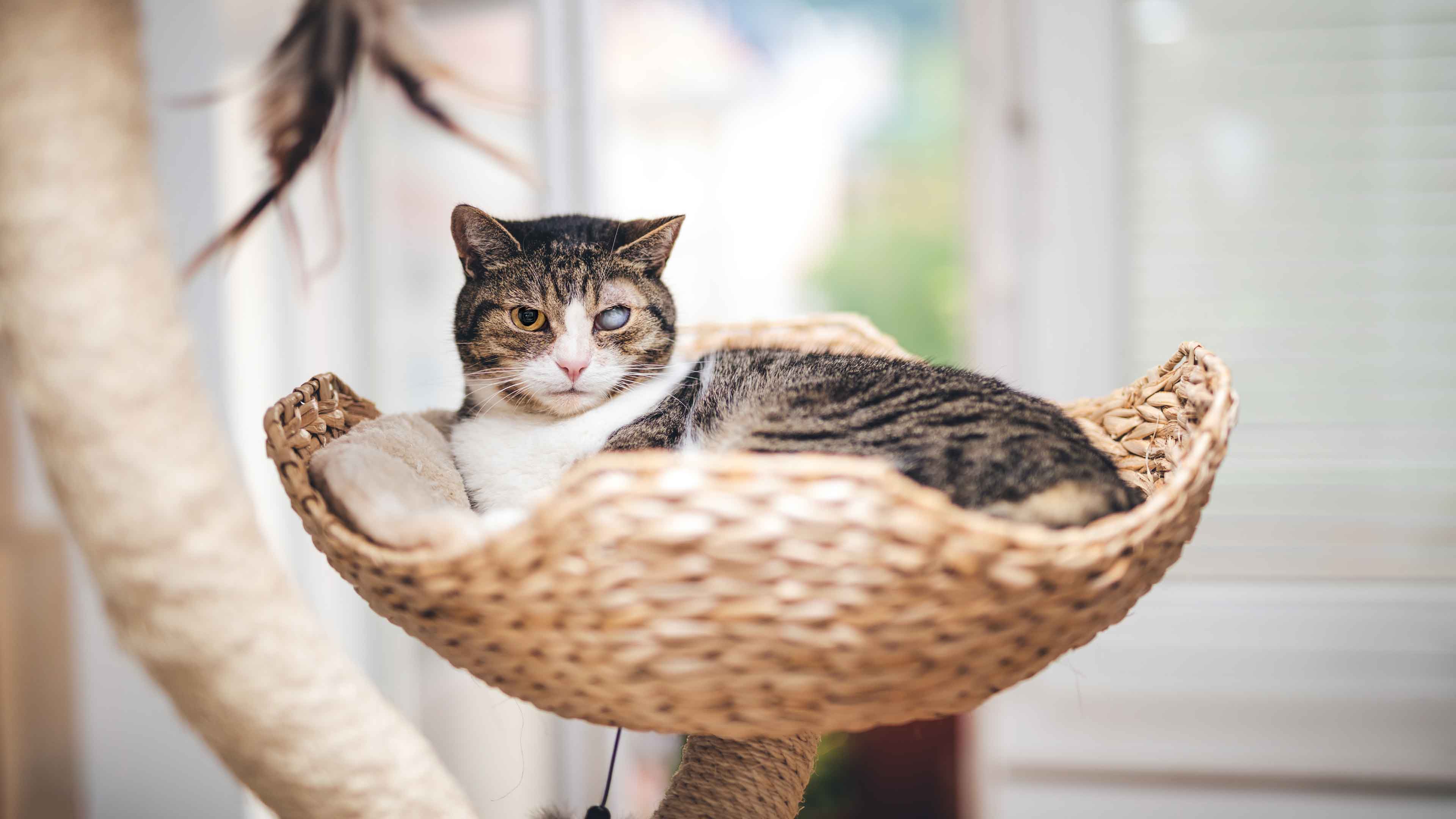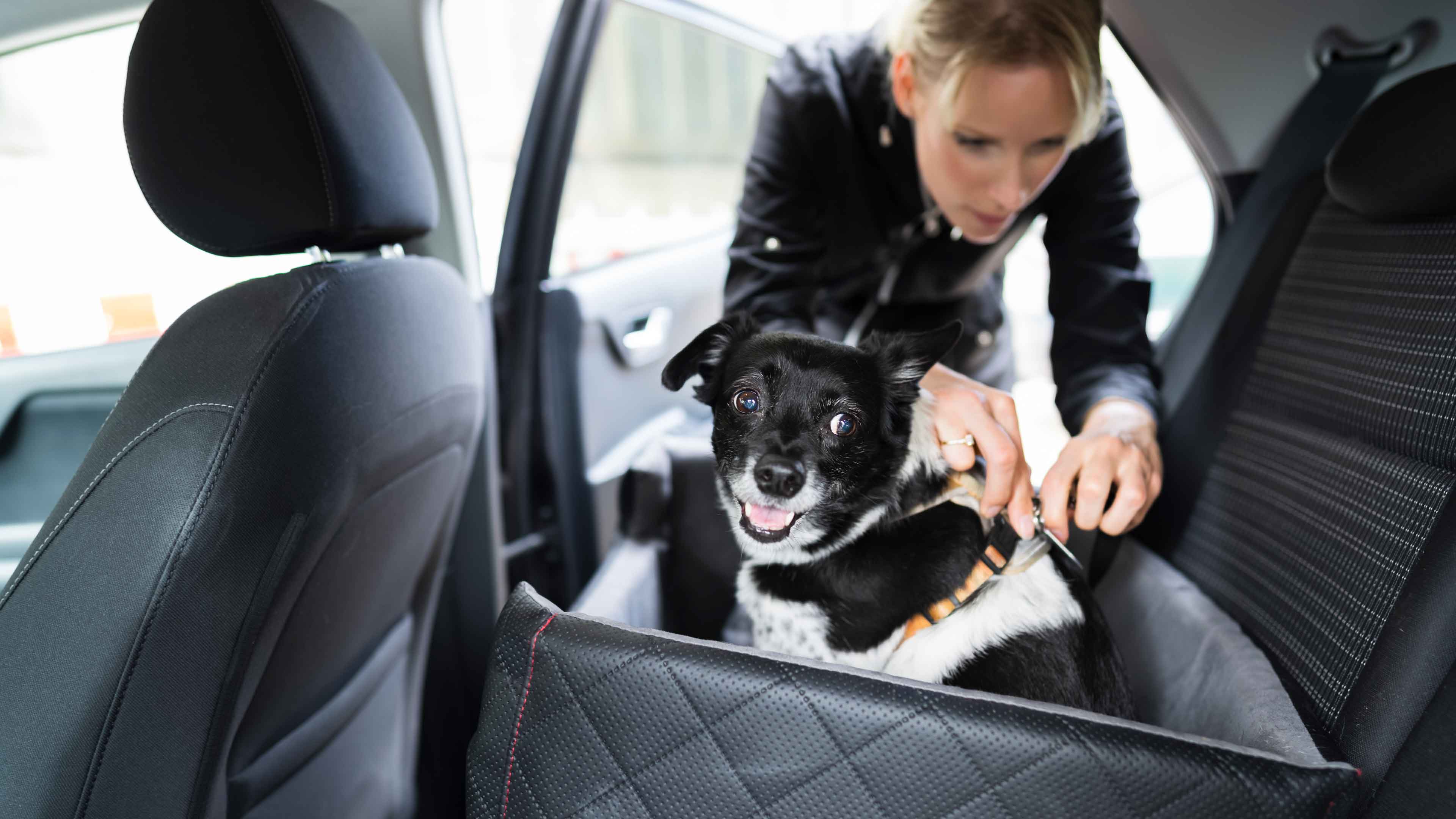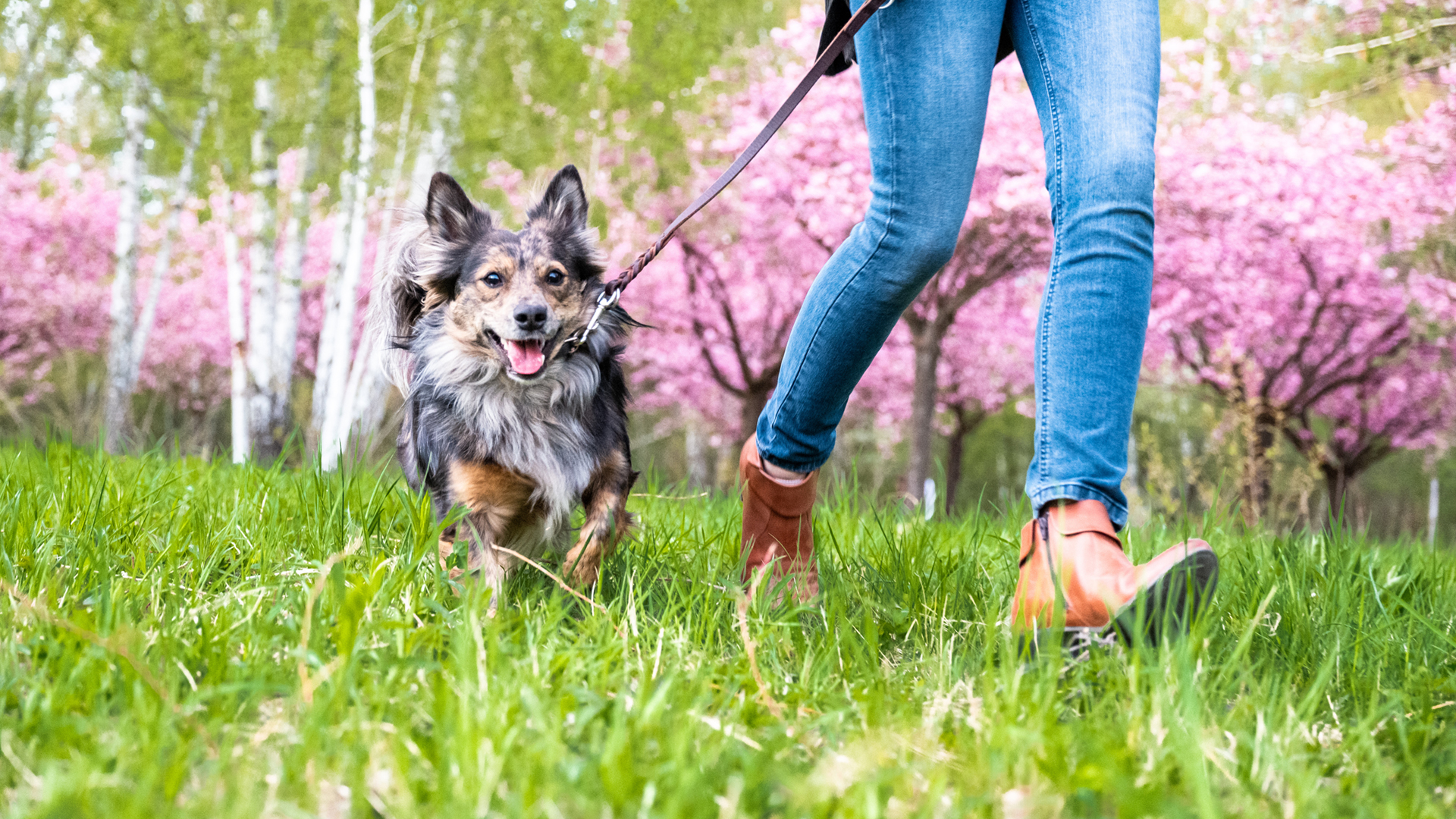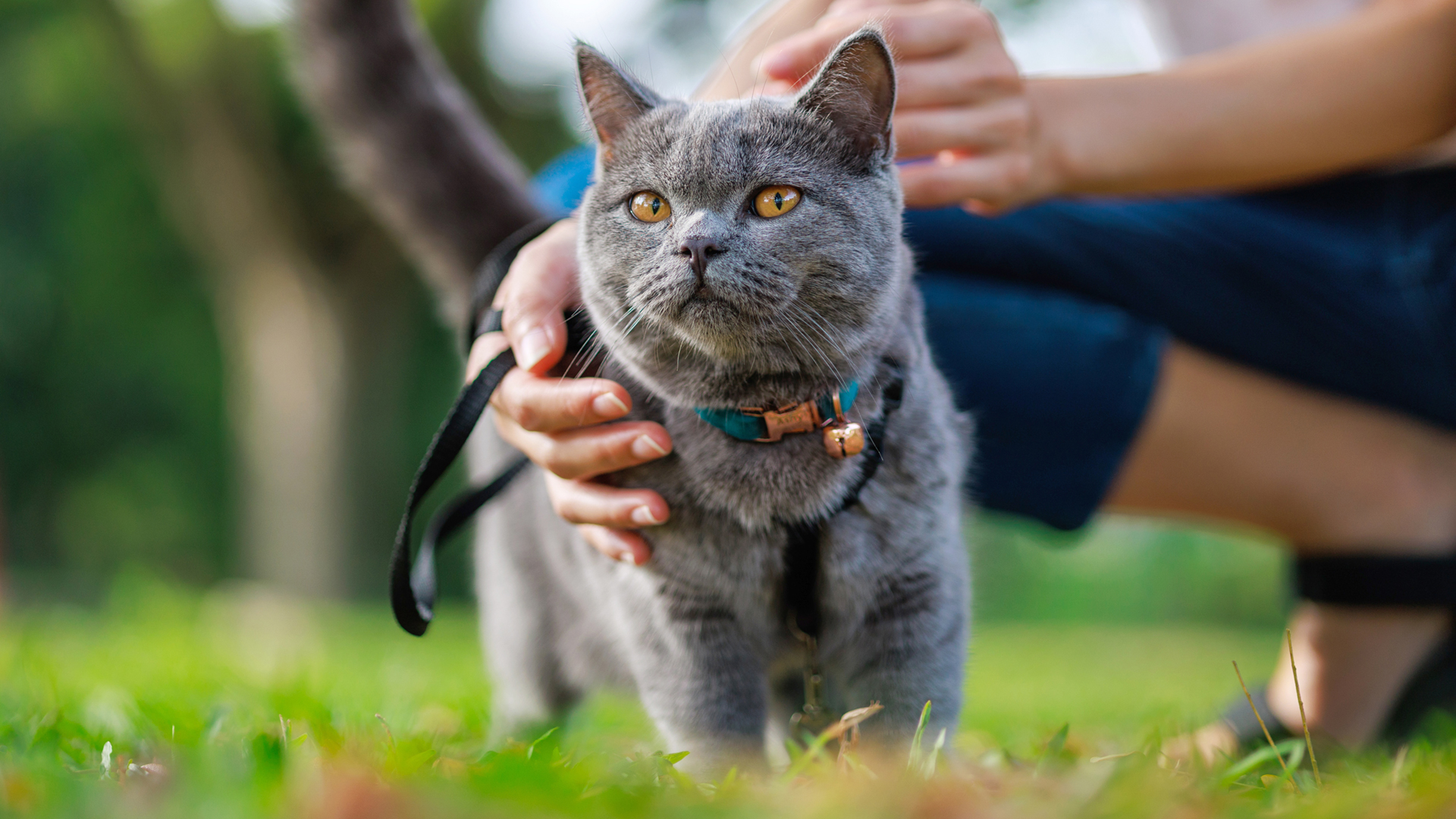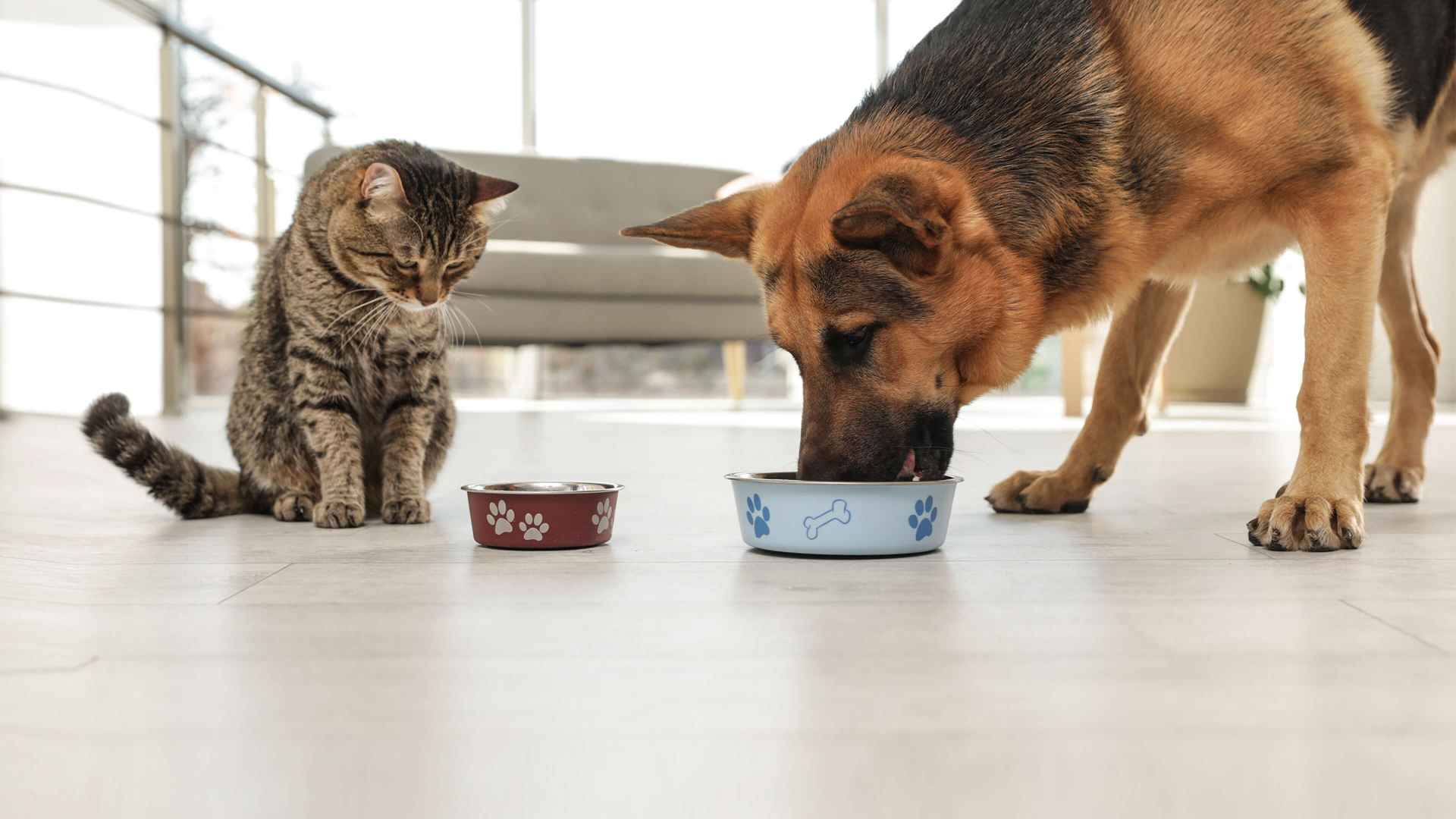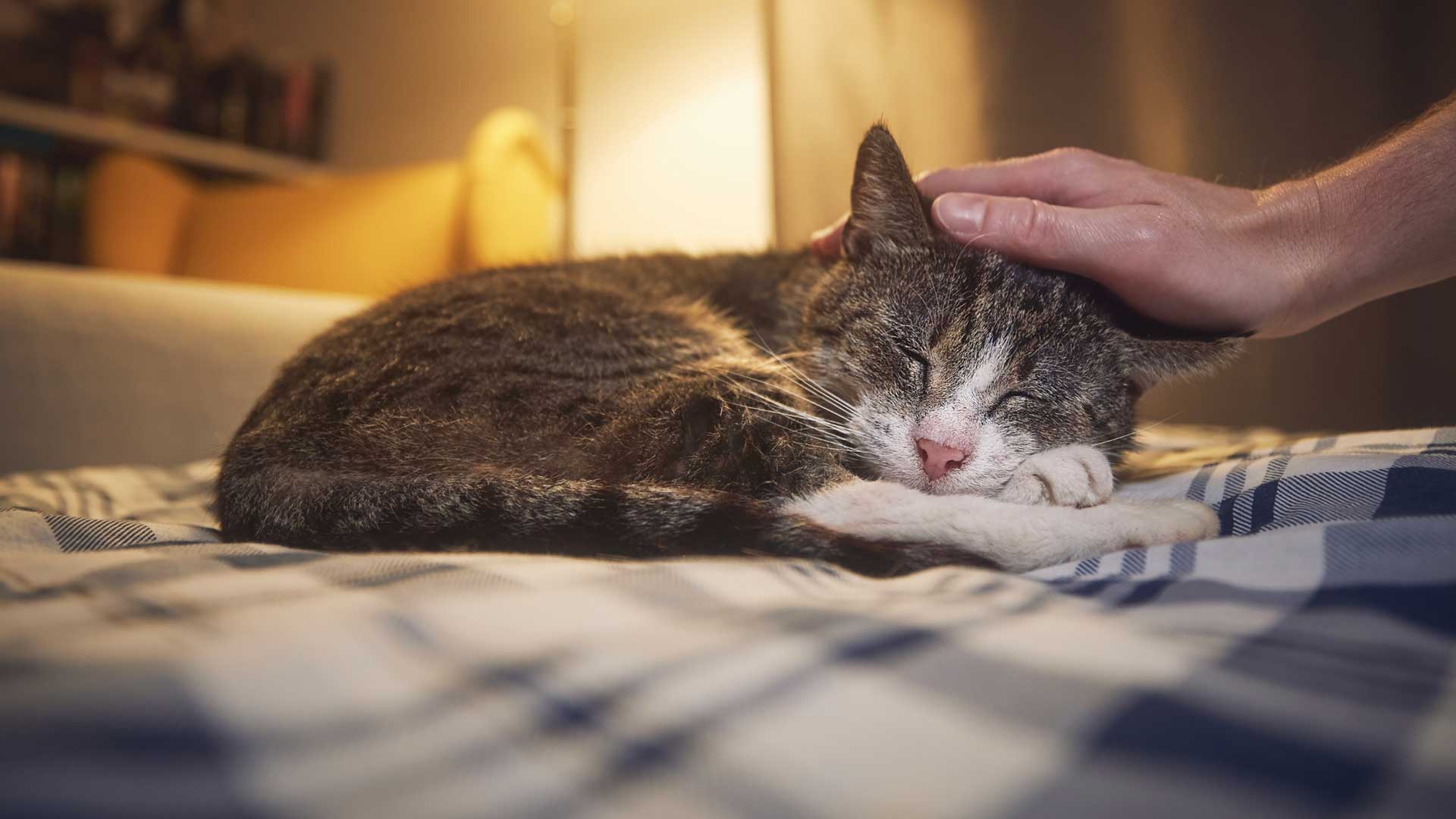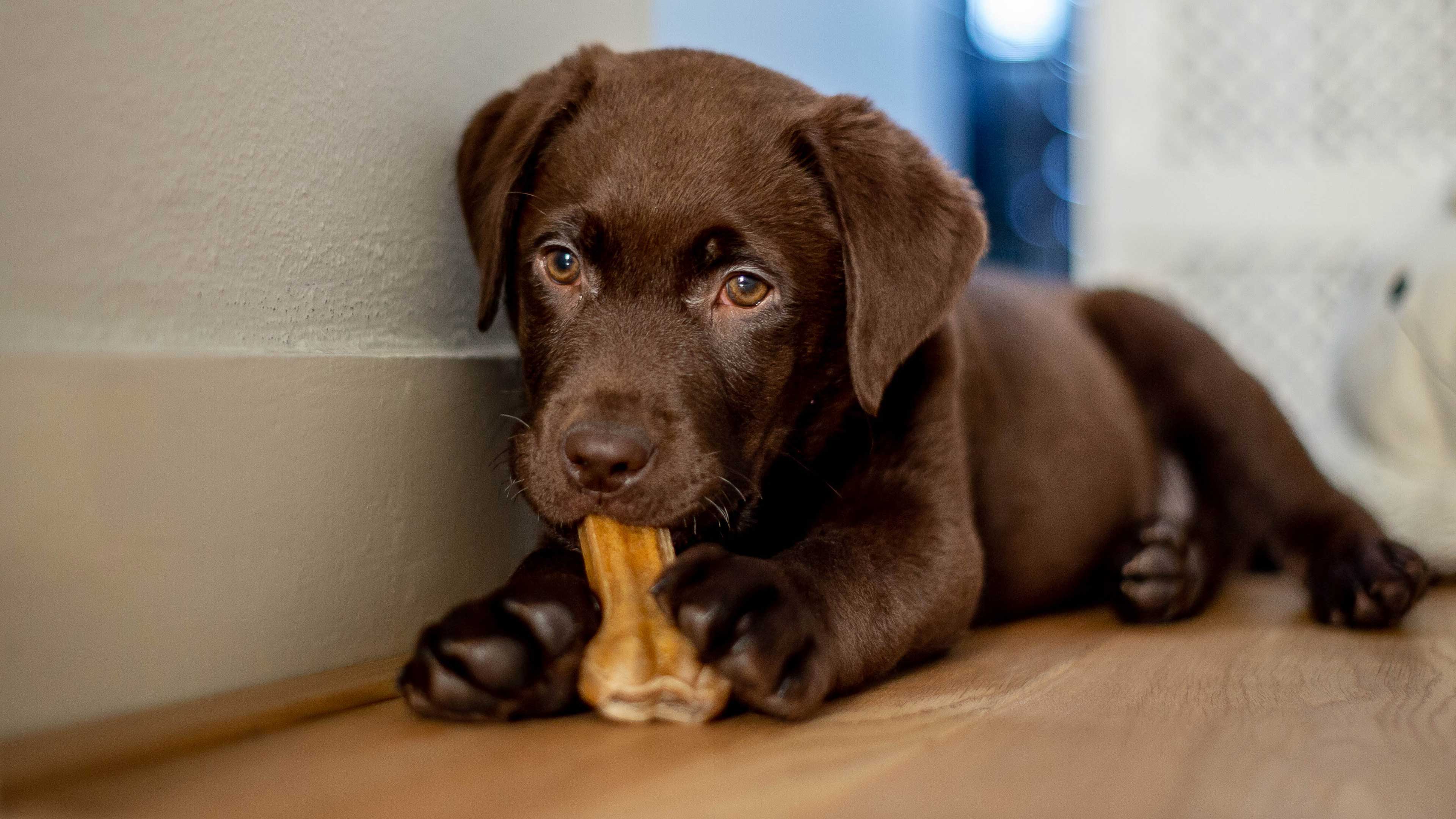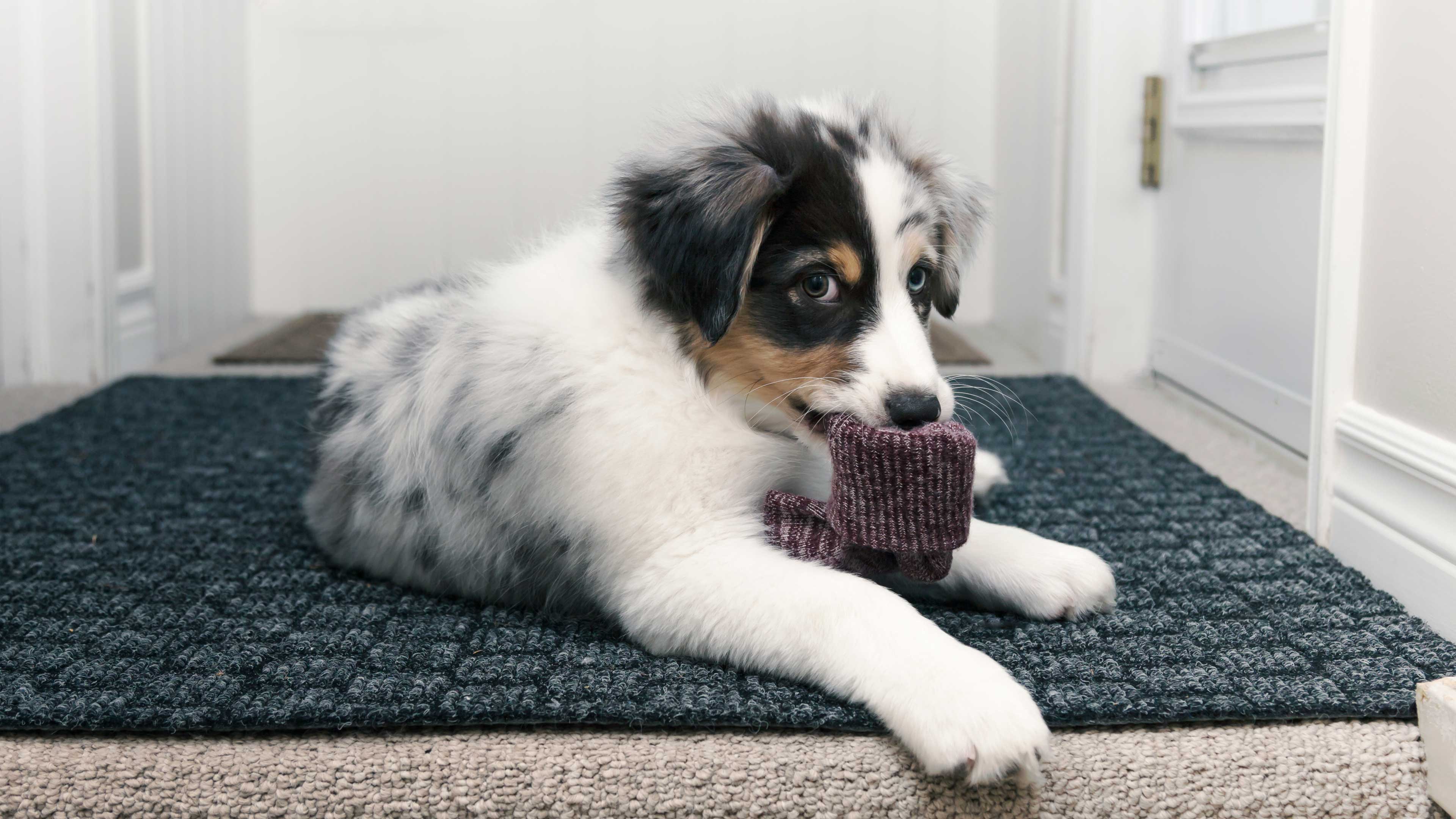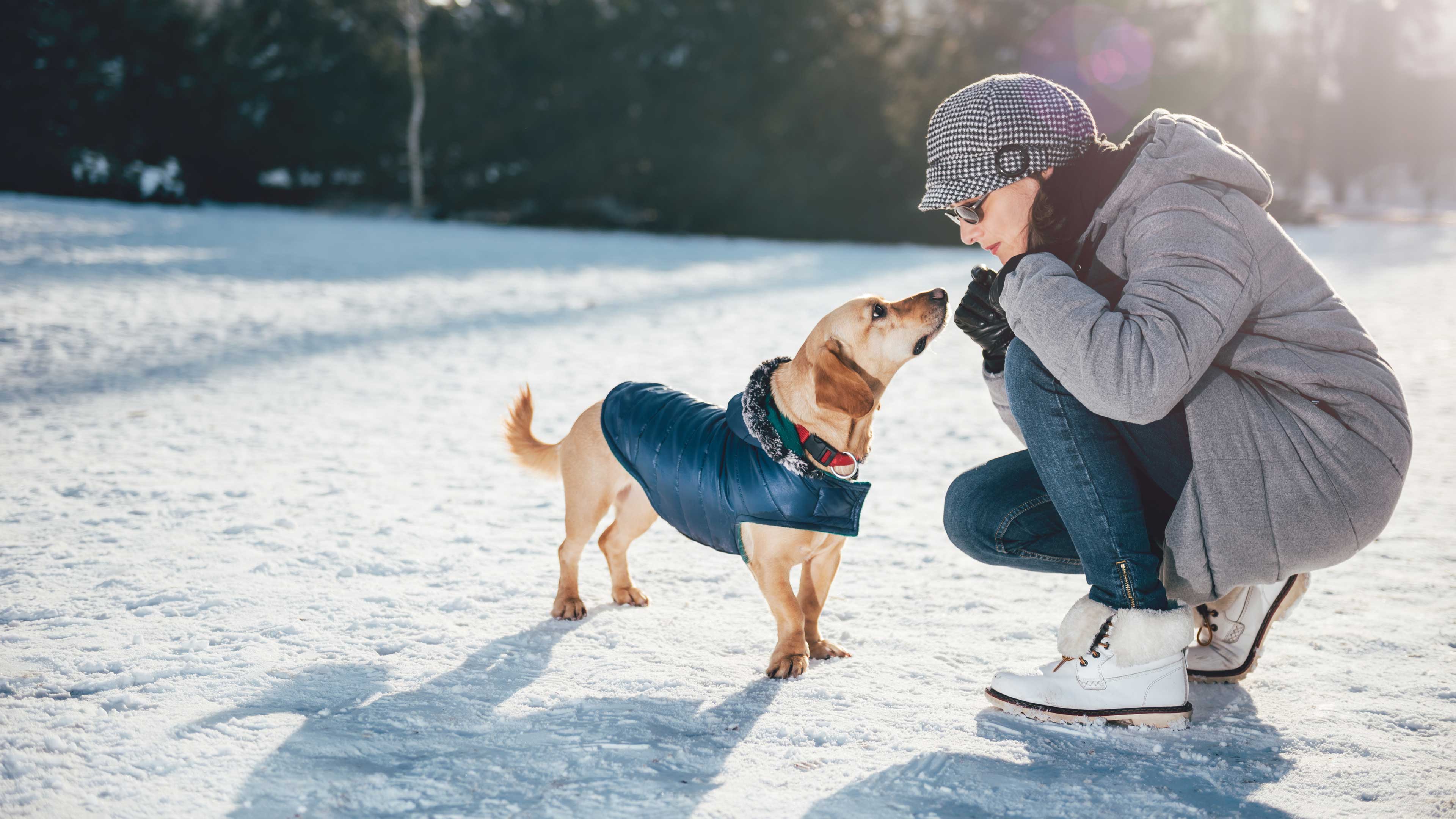how to reduce stress for your pet during the holidays
The holidays mean a lot of people, a lot of activity, and a lot of change. And not every dog or cat is good with handling all this commotion, especially on their home turf. If you have a furry friend that gets scared or agitated with large groups or changes in their schedules or environment, check out our helpful tips below.
If your pet can’t handle crowds
Fear of loud noises is a real thing that many dogs can experience. We may see this behavior occur with the crack of thunder or the boom of fireworks, but it can also happen with loud gatherings as well. Signs of anxiety in dogs include trembling, pacing, panting, hiding, whining, destroying things, or running away.
If you know your pup is going to struggle with a crowd, talk to your Banfield vet about precautions you can take. There are certain calming medications or treatments they might recommend. You can also help your sweet doggo by creating a safe space for them in the house, turning on music or the TV, or using stress-relieving devices like pheromone diffusers, compression shirts, or even just a new holiday toy. Schedule your Banfield appointment here.
If your pet doesn’t like change
Many pet owners have time off during the holidays, which means they sleep in late, stay out late, or leave the house at unusual times. (Let’s not even talk about the weird tree in the living room.) They also might travel out of town with or without their pet.
Dogs in particular do well with routine, so if you feed your dog at 7 a.m. every day, try to stick with their routine even when you’re on break. It’s also important to keep them stimulated — go for more walks, play in the house, or get them a new toy to play with. Keeping them physically and mentally active can help alleviate building anxiety or destructive behavior.
Here are some fun brain games you can try with your pet.
If you’re traveling with your pet
If your dog or cat is hitching a ride on your holiday travels and they’re not the most carefree traveler, talk to your Banfield vet about what you can do to help keep them at ease. There are anti-anxiety medications your vet can offer, as well as calming pheromones and other devices available for both dogs and cats.
And don’t forget: it's important for their safety to keep them properly buckled in their seat with appropriate equipment.
Not sure if you're taking your pet with you on your travels? We have some helpful tips on deciding whether to board your pet or hire a sitter.
If you’ve got a new puppy at home
Separation anxiety and puppies often go hand in hand. A new puppy at your house is still getting to know the lay of the land and they might get stressed out when you’re away from them. Signs your new little furball is anxious include howling, barking, or whining; trying to escape; chewing things up; excessive drooling; and pacing.
You can help your pup with all this pent-up anxiety by exercising them before you leave the house, making your comings and goings low-key, leaving out clothes that have your smell on them, and giving them a treat that only comes out when you’re gone. Here are more tips to help dog owners with their anxious puppy.
Remember: If you have any questions or concerns about your pet this holiday season, your Banfield vet is here to help! Schedule an appointment or, if your pet has an Optimum Wellness Plan, use our 24/7 Pet Chat™ for petcare advice.
 Mites and mange
Mites and mange Podcast - Not Just Fluff
Podcast - Not Just Fluff
